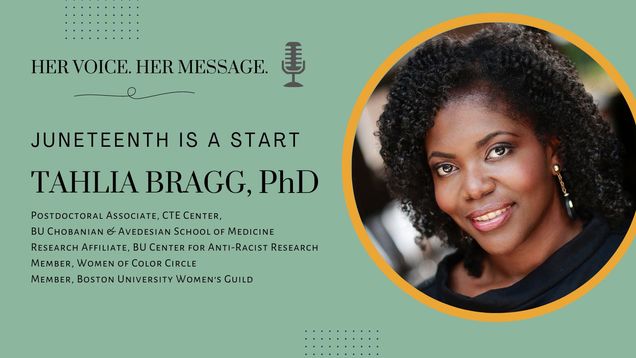Juneteenth is a Start

Juneteenth (June 19th) has been an individually observed holiday as “Independence Day” by Black people in this country since its inception. I was raised in a household that dually celebrated both Juneteenth and the Fourth of July. During childhood, I always had the day off from attending school as school was already dismissed for the summer when the holiday occurred. As an adult, I either had to use precious vacation/sick time or accept leave without pay in order to partake in the many community celebrations that acknowledged the day. The national observance of Juneteenth, for me, means that I no longer must explain why I am taking a “random” day off. Unfortunately, that is a point of privilege as many Black people are still unable to receive the day off as their jobs do not afford them the opportunity to do so.
Juneteenth is not simply a day to celebrate some form of freedom for Black people in the United States. It’s a day to emphasize and explore the challenging next steps for liberation and achieving complete equity for Black people and their communities.
Furthermore, it elevates a paramount day in United States history for more to learn about its significance. For people who do not self-identify or would be classified as Black, Juneteenth is a very important day for you as well. It should NOT be considered another day off. Rather, consider it a day of action. Learn about the resources in your community, schools, workplaces, and places of worship (if you have one) to become an authentic ally to the Black people you know and in general.
Learn about the past and present ways White Supremacy perpetually harms Black people from Black self-identifying professionals. Explore your biases (explicit and implicit), how anti-Black racism is embedded in every touchstone of society, and the likely impacts of your intentional and unintentional perpetration of anti-Black racism in your daily life. Juneteenth is not simply a day to celebrate some form of freedom for Black people in the United States. It’s a day to emphasize and explore the challenging next steps for liberation and achieving complete equity for Black people and their communities.
Resources:
- Juneteenth Events On and Off Campus
- Boston University Center for Antiracist Research
- Confronting Anti-Black Racism Project
- The Historical Legacy of Juneteenth
- Anti-Black Racism: History, Ideology, and Resistance
About the author: Tahlia Bragg, Ph.D. (she/ella) is a Postdoctoral Associate with the Department of Neurology, CTE Center of Boston University Chobanian & Avedisian School of Medicine/Boston Medical Center.
About Her Voice. Her Message. Expertise, diversity, philanthropy, and fellowship are woven throughout the Boston University Women’s Guild, Women of Color Circle, and the greater BU community. This series taps into the University’s professional, academic, and philanthropic network, and proudly welcomes a variety of voices, experiences, and expertise.
